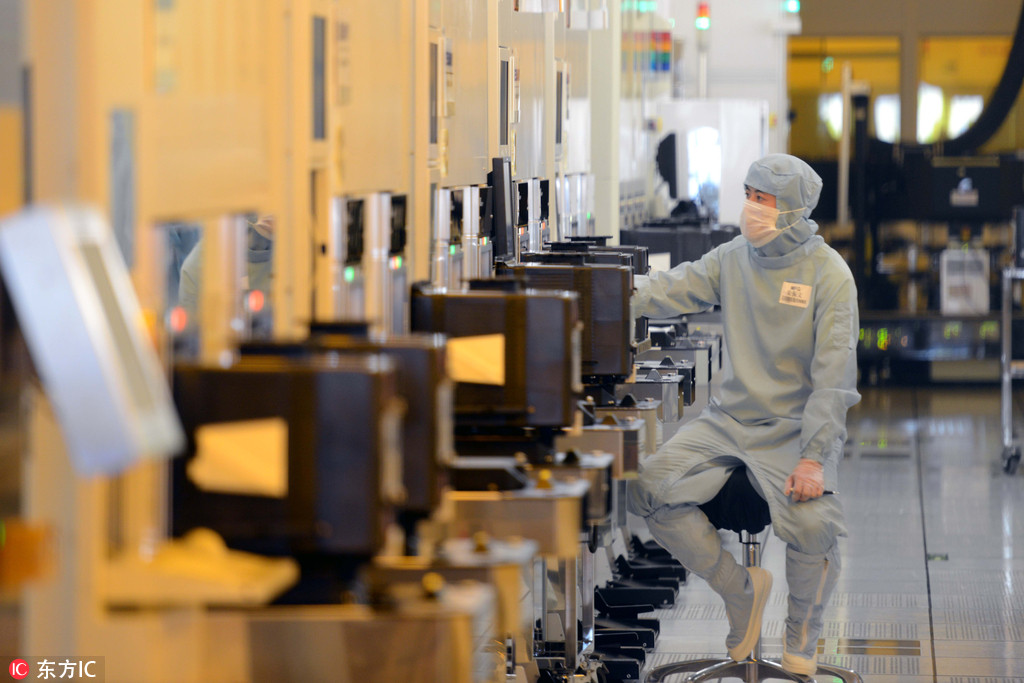IPR investigation report doesn't hold water


In his speech delivered at Boao Forum for Asia, President Xi Jinping stressed the importance of protecting intellectual property rights. He said China needs to better protect IPR by punishing the infringement of IPR more severely, and other countries should protect Chinese enterprises' IPR rights.
However, his words should not be misinterpreted as China bowing to pressure from the United States. Washington has launched an investigation under Section 301 of the Trade Act of 1974 alleging violations of US companies' IPR by China.
First, the Section 301 probe report accuses China of forcing foreign companies to transfer technologies by citing some investigation reports of a few US organizations, but without disclosing information on critical factors such as the sample size, selection principle, questionnaire and time of survey.
The annual survey of the American Chamber of Commerce in China, frequently quoted in the Section 301 investigation report, is suspect because of its suggestive questionnaire, small sample size and opaque research process. Ambiguous expressions such as "according to reports" and "the stakeholders hold" often appear in the Section 301 report, while evidence on the so-called transfers of technologies forced upon foreign companies by the Chinese government is nowhere to be found.
The US report criticizes the Chinese government for "providing" companies with funds for systematic investment in and acquisition of US companies and assets in a bid to "acquire" core technology. It ignores the fact that the Chinese government's encouragement to Chinese companies participating in the global competition is, to a large extent, just guidance. The accusation that the Chinese government provides domestic companies with funds to expand their operations abroad is groundless.
Moreover, the United States' reviews of foreign capital are among the most vigorous in the world, with the review of Chinese companies being the strictest. Given these facts, Chinese enterprises' investment in and acquisition of US companies and assets cannot violate intellectual property rights or in any way harm US national security.
On the so-called worsening business environment in China mentioned in the Section 301 report, certain foreign companies have complained about the administrative procedures, including market access, investment permission and environmental impact assessment, in China. Yet owing to the government's unremitting efforts much improvement has been made on this front, as most of China's general manufacturing sector, except for sensitive fields such as national defense science and the technology industry, are open to foreign capital.
China's Government Work Report this year has explicitly said the general manufacturing sector will be further opened up, benefiting more foreign companies. Besides, last year's revision of the Catalogue of Industries for Guiding Foreign Investment has significantly reduced the restrictions on foreign capital's access to the Chinese market. The government has also established a fair competition review system, according to which all departments and local governments are limited to issue restrictive and exclusive regulations targeting foreign companies.
China, despite some problems, has been strengthening its IPR protection, and as Xi outlined in Boao, will continue to do so. The Section 301 investigation launched by the US is mainly aimed at leveraging greater access to the Chinese market for its companies.
Contrary to what the Trump administration believes, its moves will not reduce the US' trade deficits and industrial regression. On the contrary, they will aggravate them.
The better choice would be to resolve the two sides' trade differences through negotiations. And since the US started the conflict; it should take the lead to end it.
The author is chief economist at the State Information Center.



































